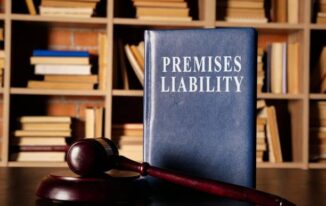Insurance policies are more than just pieces of paper; they represent a promise. When individuals and businesses pay their premiums, they enter into a contract with an insurance company, an agreement built on the expectation that if a covered loss occurs, the insurer will act fairly and in good faith to fulfill its obligations. However, the term “good faith” in the context of insurance isn’t merely a suggestion – it’s a fundamental legal principle underpinning the entire relationship. When an insurance company breaches this duty of good faith, it can lead to what is known as “bad faith,” a situation where the insurer acts unfairly or unreasonably in handling a claim. Understanding what constitutes bad faith is essential for policyholders to protect their rights and seek recourse when an insurer fails to uphold its end of the bargain.

The Foundation: The Implied Covenant of Good Faith and Fair Dealing
At the heart of insurance law lies the implied covenant of good faith and fair dealing. This legal principle, recognized across most jurisdictions in the United States, dictates that both parties to a contract – in this case, the policyholder and the insurance company – must act honestly and fairly towards each other. For the insurer, this duty extends beyond simply paying out valid claims; it encompasses the entire claims handling process. This means investigating claims promptly and thoroughly, communicating clearly with the policyholder, and making fair and reasonable decisions based on the policy language and the available evidence.
The Insurer’s Core Obligations in Claims Handling
Several specific obligations fall under the umbrella of good faith. Firstly, insurance companies have a duty to conduct a reasonable investigation of any claim submitted by a policyholder. This investigation must be timely, thorough, and objective, aimed at gathering all relevant information to assess the validity and extent of the loss. Secondly, insurers are obligated to communicate effectively with their policyholders. This includes acknowledging receipt of the claim promptly, keeping the policyholder informed of the progress of the investigation, and clearly explaining any decisions made regarding the claim.
Timely Processing and Payment of Valid Claims
Another critical aspect of good faith is the timely processing and payment of valid claims. Once an insurer has determined that a claim is covered under the policy and the amount of the loss has been reasonably ascertained, they are expected to pay the claim within a reasonable timeframe. Unjustified delays in payment can constitute bad faith, particularly if the insurer is intentionally dragging its feet or using delaying tactics to pressure the policyholder into accepting a lower settlement.
Fair Interpretation of Policy Language
Insurance policies can be complex documents, often containing intricate language and numerous exclusions. The duty of good faith requires insurance companies to interpret this language fairly and reasonably. Ambiguities in the policy are generally construed in favor of the policyholder. An insurer that deliberately misinterprets policy language to deny a valid claim may be acting in bad faith. This highlights the importance of having experienced attorneys in McAllen Texas, who can analyze policy wording and advocate for the policyholder’s rightful coverage.
Denial of Claims Without Reasonable Basis
Perhaps the most blatant form of bad faith is the denial of a claim without a reasonable basis. An insurer cannot simply deny a claim arbitrarily or based on flimsy evidence. There must be a legitimate and well-supported reason for the denial, grounded in the policy terms and the facts of the case. If an insurer denies a claim without conducting a proper investigation or misrepresents the facts to justify a denial, they may be liable for bad faith. If you are searching for an insurance bad faith attorney near me after such a denial, it indicates a serious potential issue.
The Prohibition Against Unfair Settlement Practices
The duty of good faith also extends to settlement negotiations. Insurers are expected to attempt in good faith to reach a fair and equitable settlement of a valid claim. Offering a settlement that is unreasonably low, especially when the insurer knows the actual value of the claim is significantly higher, can be considered an unfair settlement practice and a breach of good faith. Similarly, pressuring policyholders to settle for less than they are entitled to under their policy can also constitute bad faith.
Failure to Adequately Defend the Policyholder
In liability insurance policies, the insurer often has a duty to defend the policyholder against lawsuits arising from covered events. A failure to provide an adequate defense, or acting in a way that prejudices the policyholder’s defense, can be a form of bad faith. This includes situations where the insurer refuses to defend a covered claim or fails to adequately represent the policyholder’s interests during litigation.
Consequences of Acting in Bad Faith
When an insurance company acts in bad faith, it can face significant legal and financial consequences. Policyholders who have been subjected to bad faith practices can file lawsuits against their insurers to recover not only the amount of the denied or underpaid claim but also additional damages. These may include consequential damages (financial losses incurred as a result of the bad faith conduct), emotional distress damages, and in some cases, punitive damages intended to punish the insurer for egregious behavior and deter similar conduct in the future.
The Role of Legal Counsel in Bad Faith Claims
Navigating a bad faith insurance claim can be a complex legal undertaking. It requires a thorough understanding of insurance law, contract law, and civil litigation procedures. This is where the expertise of an insurance bad faith attorney becomes invaluable. These legal professionals specialize in representing policyholders in disputes with their insurance companies, investigating potential bad faith conduct, and building strong legal cases to hold insurers accountable.
Documenting Interactions and Building Your Case
If you suspect your insurance company may be acting in bad faith, it is crucial to meticulously document all interactions with the insurer. Keep records of phone calls, emails, letters, and any other communication. Preserve all documents related to your claim, including the policy, claim forms, denial letters, and any evidence supporting your loss. This detailed documentation will be essential if you decide to pursue legal action with the assistance of attorneys specializing in insurance disputes.
State Laws and Regulations Governing Bad Faith
It’s important to recognize that insurance laws and regulations, including those pertaining to bad faith, can vary from state to state within the United States. Understanding the specific laws in your jurisdiction is crucial when evaluating a potential bad faith claim. An insurance bad faith attorney near me will be well-versed in the applicable state laws and precedents.
Seeking Justice and Holding Insurers Accountable
Ultimately, the concept of bad faith in insurance law serves to protect policyholders from unfair and unreasonable conduct by insurance companies. It underscores the fiduciary-like duty that insurers owe to their policyholders – a duty to act in their best interests and handle claims fairly and honestly. When insurers breach this duty, policyholders have the right to seek justice and hold them accountable for their actions. The pursuit of a bad faith claim is not just about recovering financial losses; it’s about ensuring that insurance companies uphold their promises and operate with integrity.



